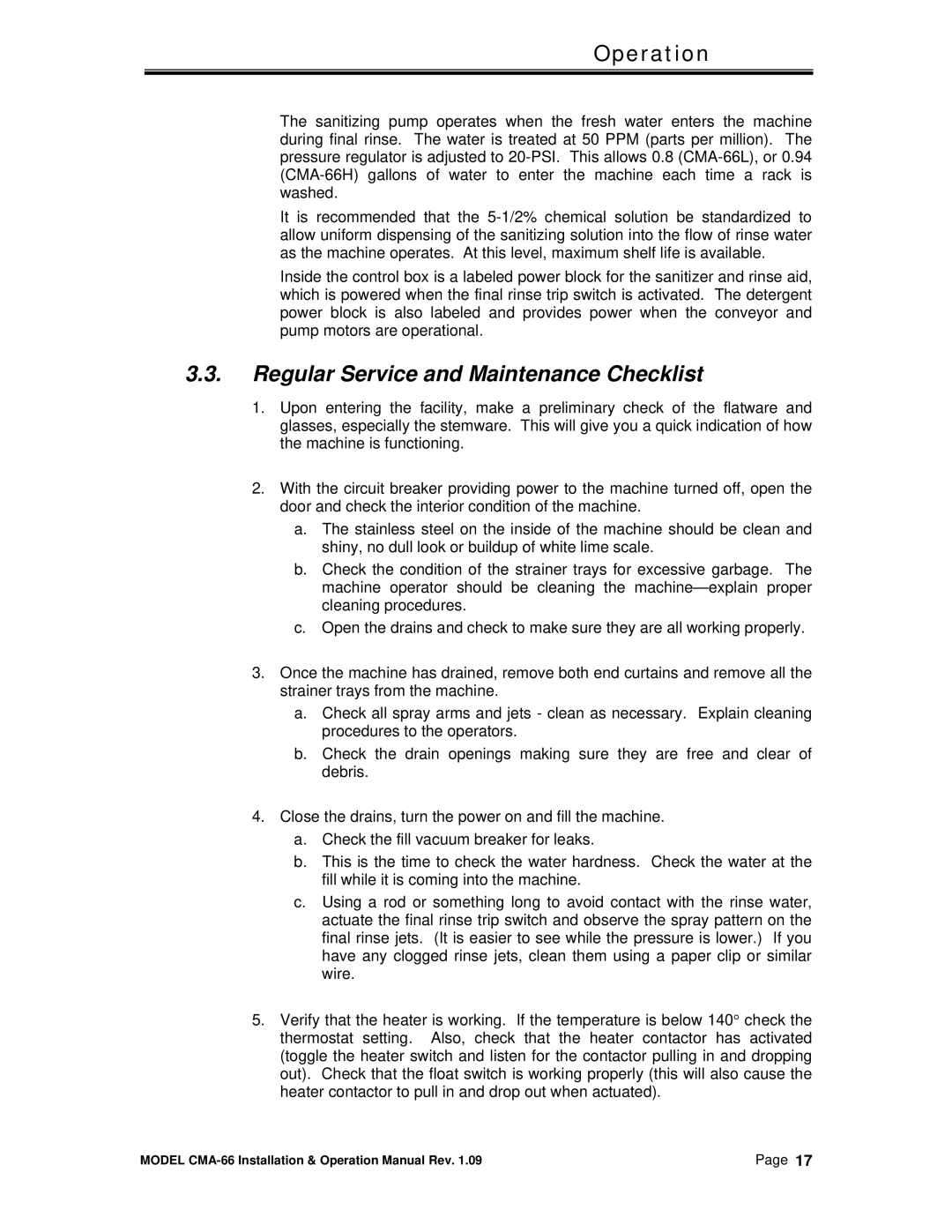CMA-66 specifications
The CMA Dishmachines CMA-66 is a cutting-edge commercial dishwasher designed to meet the rigorous demands of busy kitchens in restaurants, catering facilities, and other food service operations. This machine is particularly renowned for its robust construction, innovative technology, and efficient performance, making it a top choice among commercial dishwashing options.One of the main features of the CMA-66 is its impressive capacity. The machine can process up to 66 racks per hour, allowing high-volume kitchens to maintain a steady workflow without delays. This efficiency is crucial in fast-paced environments, where time is of the essence. The CMA-66 is designed to accommodate standard 20” x 20” racks, making it compatible with most dishware used in commercial settings.
The CMA-66 incorporates advanced rinse technologies, including a built-in booster heater that ensures proper sanitization. This feature provides a water temperature of up to 180°F during the final rinse cycle, which is essential for meeting health department requirements. Additionally, the machine utilizes a high-efficiency pump to circulate water effectively, ensuring that all items are thoroughly cleaned and sanitized.
Energy efficiency is another hallmark of the CMA-66. This model is designed to minimize water and detergent usage, making it environmentally friendly while also reducing operational costs. The machine consumes only 0.74 gallons of water per rack, which significantly lowers water bills compared to traditional dishwashers. Features such as the automatic wash system further enhance its efficiency by optimizing the wash cycle based on the load size.
The CMA-66 is built with durability in mind, featuring a stainless steel construction that is resistant to corrosion and easy to clean. This not only extends the lifespan of the machine but also contributes to a hygienic kitchen environment. The units are equipped with a user-friendly control panel, making operation simple and straightforward for kitchen staff.
In terms of safety, the CMA-66 is designed with operator protection in mind. It features a door safety latch that ensures the machine does not operate while the door is open, preventing accidents and ensuring a safe working environment. Moreover, the model is equipped with a built-in pump that prevents backflow, further enhancing hygiene standards.
Overall, the CMA Dishmachines CMA-66 stands out in the commercial dishwashing market due to its exceptional performance, energy efficiency, and durability. Whether it’s a bustling restaurant or a large banquet hall, the CMA-66 delivers the reliability and speed needed to keep up with the demands of the modern food service industry. Its advanced features make it a valuable asset for any commercial kitchen looking to streamline operations and maintain high cleanliness standards.
